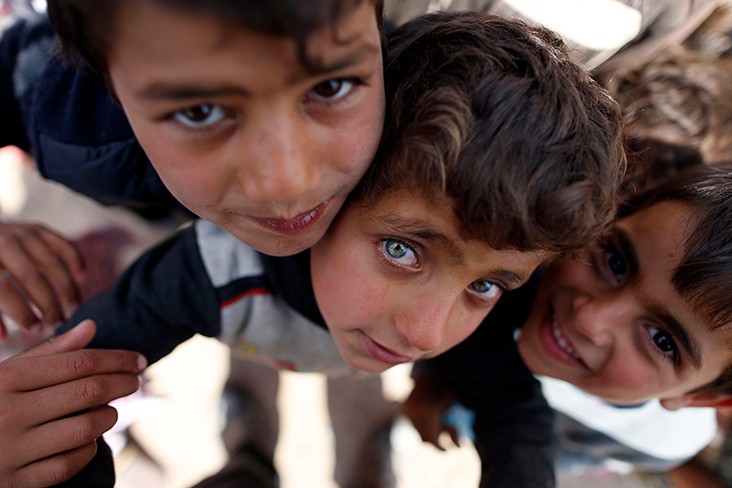U.S. Agency for International Development (USAID) Administrator Mark Green announced the first tranche of recipients under USAID’s New Partnerships Initiative (NPI) on Thursday during his remarks at the Accord Network’s Annual Forum.
The organizations will carry out programs that improve global health outcomes in USAID’s partner countries, and assist populations in the Republic of Iraq that are recovering from the genocide perpetrated by the so-called Islamic State in Iraq and Syria (ISIS).
Administrator Green launched the NPI in May 2019 to expand and diversify USAID’s partner base and change the way the Agency does business. By working with new or underutilized partners, the Agency hopes to bring more innovative approaches to U.S. foreign assistance; focus on strengthening capacity and commitment in partner countries by tapping into existing networks of community- and faith-based organizations; and reach new populations.
Administrator Green also announced a new $18 million award to the International Organization for Migration (IOM) to support the return and recovery of displaced religious and ethnic minority communities in the Nineveh Plains and Western Nineveh Province. Long-time USAID partner Samaritan’s Purse will receive $9 million of that total.
New USAID Assistance Through the NPI Direct to Local Iraqi Groups That Are Helping Victims of ISIS Genocide
USAID is awarding small grants through the NPI that total approximately $4 million to six local groups in Northern Iraq to help religious and ethnic minorities targeted by ISIS. The new NPI implementers in Northern Iraq are the following:
Philadelphia Organization for Relief and Development: The award will establish a community center in the town of Qaraqosh to provide services for people with disabilities, training in employment skills, child care, and a community food bank.
Catholic University of Erbil: The award will provide classes in business language and computer software for widows, victims of abuse, and former captives of ISIS.
Top Mountain: The award will support a business incubator and employment program for Iraqi youth, which will promote entrepreneurship, provide business training, and build commercial networks.
Shlama Foundation: The award seeks to improve job opportunities through training engineers on the installation on solar power, provide electricity for families, and install solar-powered pumps for farms and street lighting for villages.
Beth Nahrain: The award will help re-establish a local, women-led organization decimated by ISIS. The organization will also provide small-business vocational training to women in the Nineveh Plains.
Jiyan Foundation for Human Rights: The award will provide trauma-rehabilitation and resilience services to survivors of genocide; legal services and programs in justice/reparations; and activities to promote inter-religious and inter-ethnic dialogue.
The United States remains committed to supporting persecuted religious and ethnic minorities in Northern Iraq. With these new awards, the total assistance the U.S. Government has provided since 2017 in Northern Iraq is now more than $400 million. These programs complement H.R. 390, the Iraq and Syria Genocide Relief and Accountability Act of 2018, which passed with bipartisan support in the U.S. Congress and which President Donald J. Trump signed into law on December 11, 2018. Additional U.S. humanitarian assistance has also benefited the same Iraqi communities.
New Funding for the IOM and Samaritan’s Purse to Help Victims of ISIS Genocide
Administrator Green also announced at the Accord Network that Samaritan’s Purse will receive $9 million as a part of a new $18 million award to the International Organization for Migration (IOM), to support the return and recovery of displaced religious and ethnic minority communities in the Nineveh Plains and Western Nineveh Province in Iraq.
New USAID Assistance in Global Health Through the NPI
Administrator Green also announced two new awards under the Agency’s NPI for global health. These awards, which total $68 million, will leverage the expertise and reach of local and locally established civil society and faith- and community-based organizations to increase the quality, access, and sustainability of health care.
The new NPI implementers for global health are the following:
World Relief: Working with local partners, World Relief will expand and leverage existing community networks in four countries to help strengthen maternal, reproductive, and child health at the local level.
Palladium International: This program will help reach USAID’s goal of increasing access to, and the uptake of, high-quality health care across priority areas, in line with USAID’s Journey to Self-Reliance. The partner will provide sub-awards to local organizations, along with mentoring and technical support to strengthen their capacity. Palladium will be expected to pass sixty-five percent of the total award to new and underutilized sub-awardees.
(Source: USAID)


